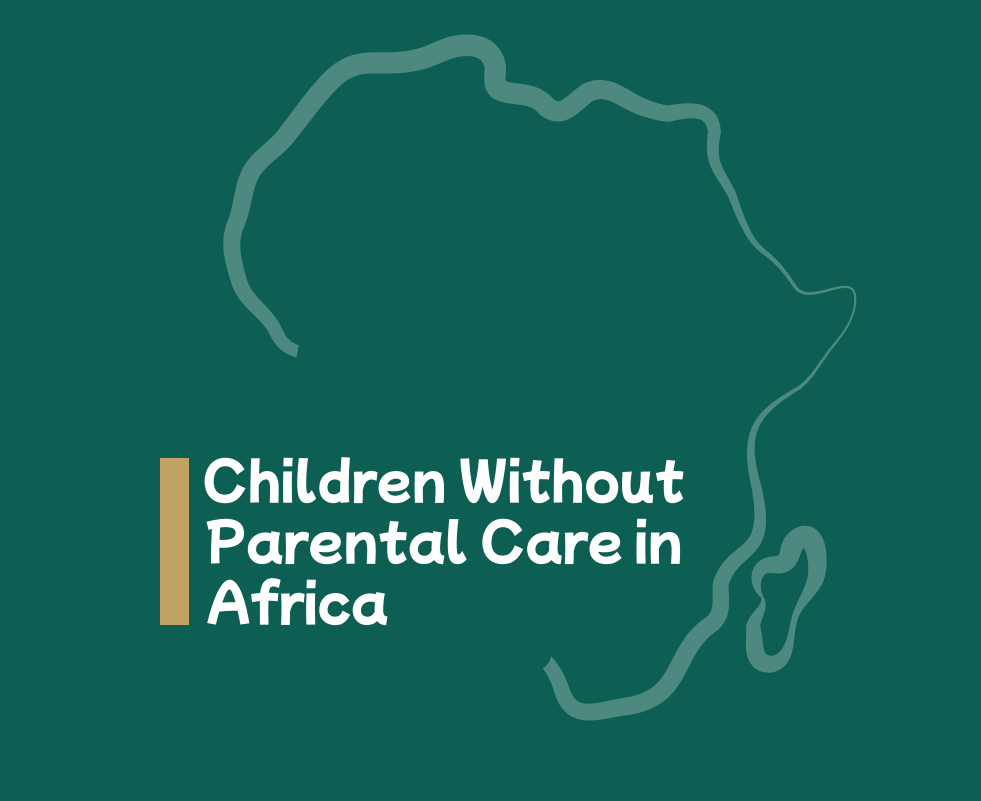The African Committee of Experts on the Rights and Welfare of the Child (ACERWC), in collaboration with African Union member states, partner organisations and children and young people, have launched a first of its kind study on children without parental care (defined as children not in the care of at least one of their parents) in Africa.
The study, conducted from 2020 to 2022, covered over 43 countries in all five regions of Africa.
The findings highlight the nature, magnitude, driving factors, policy and programmatic responses to the challenges faced by children.
SOS Children’s Villages are proud to have been a partner on this study.
“They don’t know why we go and stand along the boulevard every day. It’s so they can see us when they go to their offices. Even all those white people who pass by don’t see us. On the contrary, they pass by with their guards, who push us around and trample us like animals.”
Summary of the key findings
A combination of various causes result in children being separated from their families, including, poverty, war and conflict, displacement, sexual and physical abuse, and unstable family environments.
Analysis of existing data suggests 35 million children are without parental care in Africa.
These children are routinely exposed to various forms of abuse including:
- Sexual abuse
- Forced labour and trafficking
- Forced separation from their parents and family or from their homes due to emergencies
- Coming in to contact with the law
- Substance and drug abuse
- Mental health issues
- Limited access to education, healthcare and nutrition.
However, many African countries lack explicit policies for children without parental care:
- 80% of East and West African countries
- 70% of Southern African countries
- 87.5% of Central African countries
Current support for children without parental care
The most commonly practiced alternative care options for children without parental care across the five African regions include kinship care, foster care, residential care, institutional care, and kafalah (a child protection measure that occurs when a person voluntarily cares for the specific needs of a child deprived of their family).
The availability of these options varies by region. However, the study highlights kinship care as the best solution for children in Africa who are at risk of family separation or who have lost parental care.
Evidence shows that with appropriate regulations and support, kinship care provides a significant opportunity to ensure children remain in a family setting.
To address the issues facing children without parental care in Africa, governments and other partners have begun implementing programmes, including:
- the prevention of family separation through community empowerment
- the provision of care and protection services
- advocacy for child rights
- reintegration and reunification of children back into families of origin
- strengthening community structures and systems
- care systems reforms to ensure adherence to international and continental policies and standards.
Nearly 43% of children in alternative care fear losing their caregivers and worry about the future.
Nearly 96% of children in alternative care express gratitude for receiving care but felt abandoned and unwanted.
Recommendations
The study has outlined key recommendations to improve the overall support available to these children and to help strengthen families and prevent separation or loss of parental care. These are:
- To address the root causes of child-family separation in Africa, a concerted effort to mitigate socio-economic disparities is crucial to ensure a holistic development of children across the continent.
- National policies should outline appropriate family-based care options and quality standard that meet the needs of children without parental care and move away from institution care.
- National statistical databases or periodic studies should include children without parental care e.g. demographic health surveys and multi-indicator cluster surveys.
- States should improve child protection and safeguarding by enhancing community-based structures and systems that facilitate appropriate case management, reporting and response.
- The development of explicit laws for children without parental care is recommended for all countries that do not have them in place. The details of the laws should be modelled on the provisions of the #UNCRC and #ACRWC.
- One size does not fit all when it comes to alternative care. Member states need to develop and implement quality standards for all alternative care options implemented in their countries.
- States should prioritise investments in child protection services and social services to support quality alternative care, including families and communities in order to prevent the separation of children from their families, with the best interests of the child as the primary consideration.
- Develop and adopt a general comment on children without parent care on the African Charter. The General Comment will service as a child rights monitoring tool during States’ periodic reporting.
“I ended up here because I was hoping to meet an important person who could help my family and to live in decent conditions and to go to school. Unfortunately, everyone ignores us when we are on the street. The rich always roll up the windows of their cars.”
SOS Children’s Villages are proud to have supported in the development of this crucial study. All children deserve more than just survival. They have a right to grow up in a safe and caring family environment, giving them the best chance of a secure future.
This study will help ensure children in Africa can thrive, not just survive.
Read the full continental study on children without parental care in Africa here.

